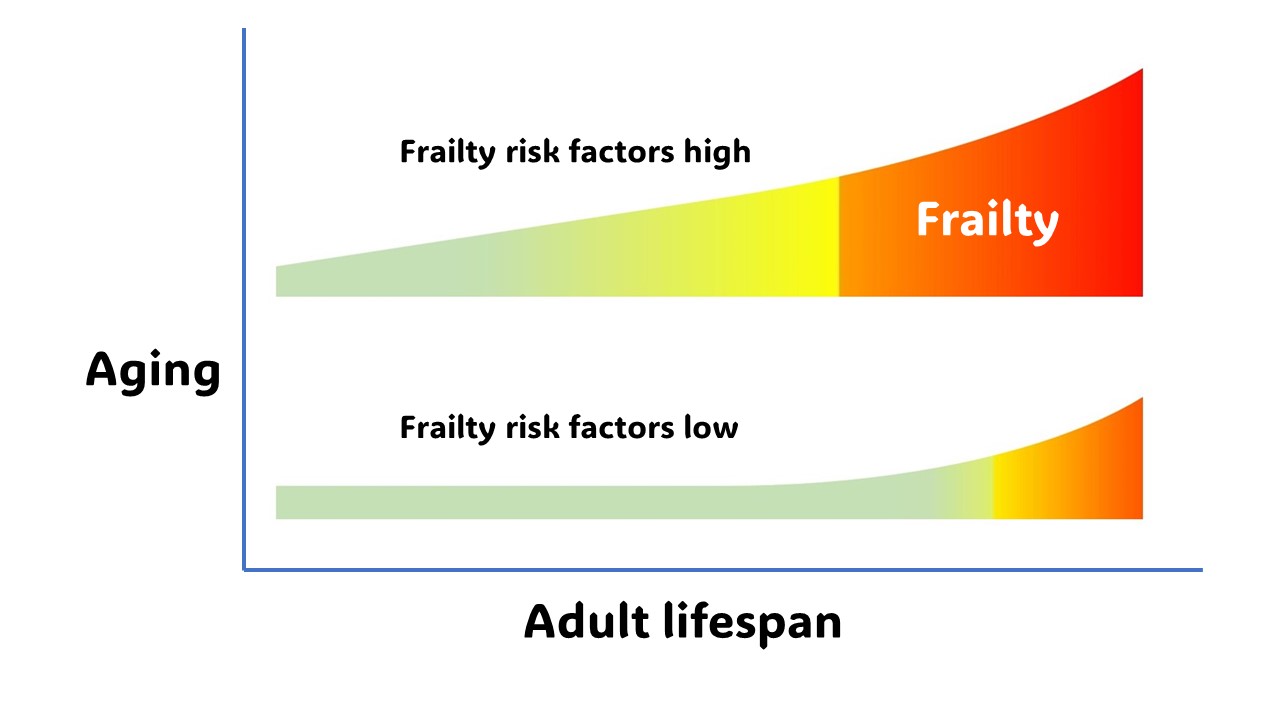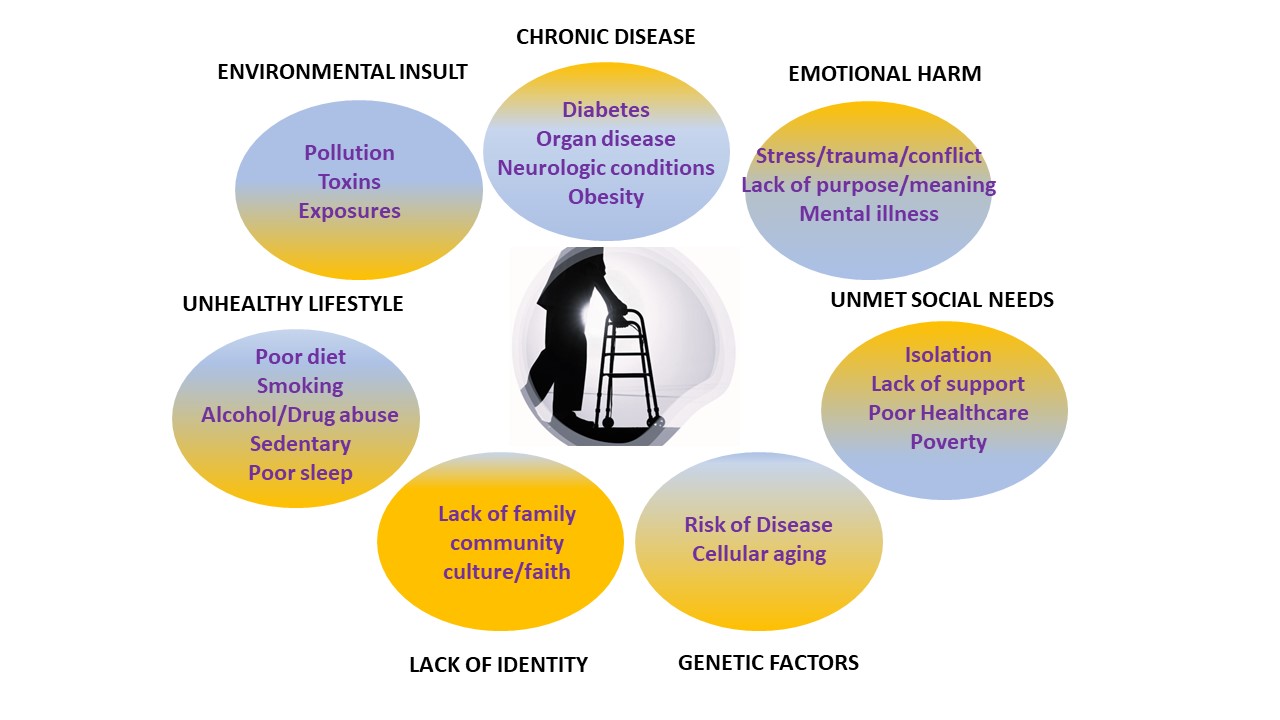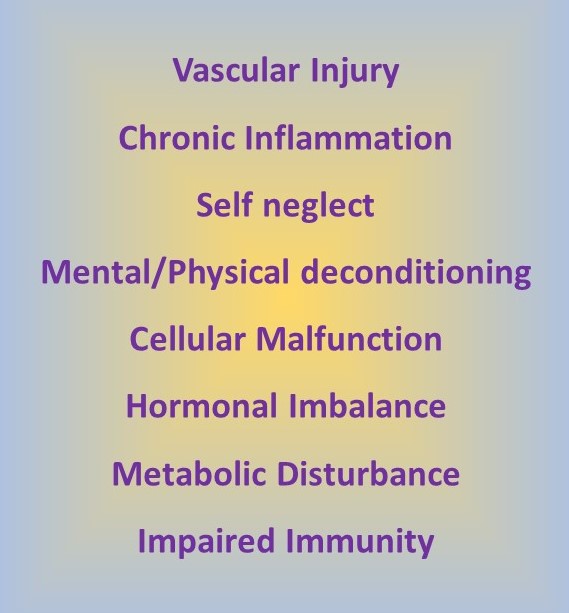Almost half of the people born in 1940 are still alive today. They are over 80 years old. For people who were born in 1950 or later, more than 70% are expected to live past the age of 80. What will life be like for these people? Is 80 the new 70? Or will living longer mean an extended period of weakness and frailty? It is true that frailty can be delayed. However, it is more controversial whether this has happened. Some people will live with extended periods of frailty.
Why do some people become frail before others?

Credit: Geriatrics with Aloha
The above graph shows that frailty can be a small or larger part of adult life. The aging body eventually becomes frail. However, risk factors contribute to an earlier onset of frailty. Each of the following risk factors is important. Do any of these risk factors surprise you?

Credit: Geriatrics with Aloha
Chronic disease and unhealthy lifestyles do long term damage to the body. This is easy to understand. Smoking, for example, is a major risk factor for frailty at an earlier age. Life expectancy is also ten years less.
But environmental, emotional, and socio-economic factors also speed up aging. Chronic stress is extremely harmful. Loneliness and absence of social support can result in a rapid decline into frailty.
How do risk factors lead to frailty?

Credit: Geriatrics with Aloha
Many chronic diseases damage both large and small blood vessels over time. Blood flow then decreases to muscles and organs such as the heart, kidneys, and brain. The result is injury and a decline in function.
Aging is also accelerated by imbalance in the body’s processes. The mechanisms are complex and interwoven. One simplified example of this is the body’s defense system. When the body is attacked, white cells, antibodies, chemicals, and repair mechanisms are activated. However, long-term overactivity of these responses is called a chronic inflammatory response. This results in cellular injury, disease, and accelerated aging. A wide variety of challenges can result in chronic inflammation. These include environmental toxins, chronic stress, processed foods, and disease.
Chronic stress also results in persistent hormonal imbalance. Cortisol, the stress hormone, is overactive and levels stay high longer. Figuratively speaking, the body is in a constant state of distress and gets worn out. This results in decreased immunity, organ damage, and injury to the nervous system. Metabolism and cellular repair are also impaired.
Muscles, organs, and the brain need balance between exercise/stimulation and rest/regeneration. Sleep is vital. At the same time, “use it or lose it” is a simple way of describing deconditioning.
Genetics also plays a key role. We’ve all heard the phrase “he/she has good genes”. The percentage of the population that is blessed with good genes is uncertain. However, family lines with longer lives and delayed frailty are being studied. Good genes decrease the probability of chronic disease. Aging is also slower at the cellular level. . Cells produce energy, repair damage and function at a higher level for extended periods. Breakthroughs in cellular aging are key to delaying frailty.
I hope this discussion provides food for thought and a tidbit of mental stimulation to delay frailty. Remember also to sleep well. The next post is about what can be done to delay frailty.







